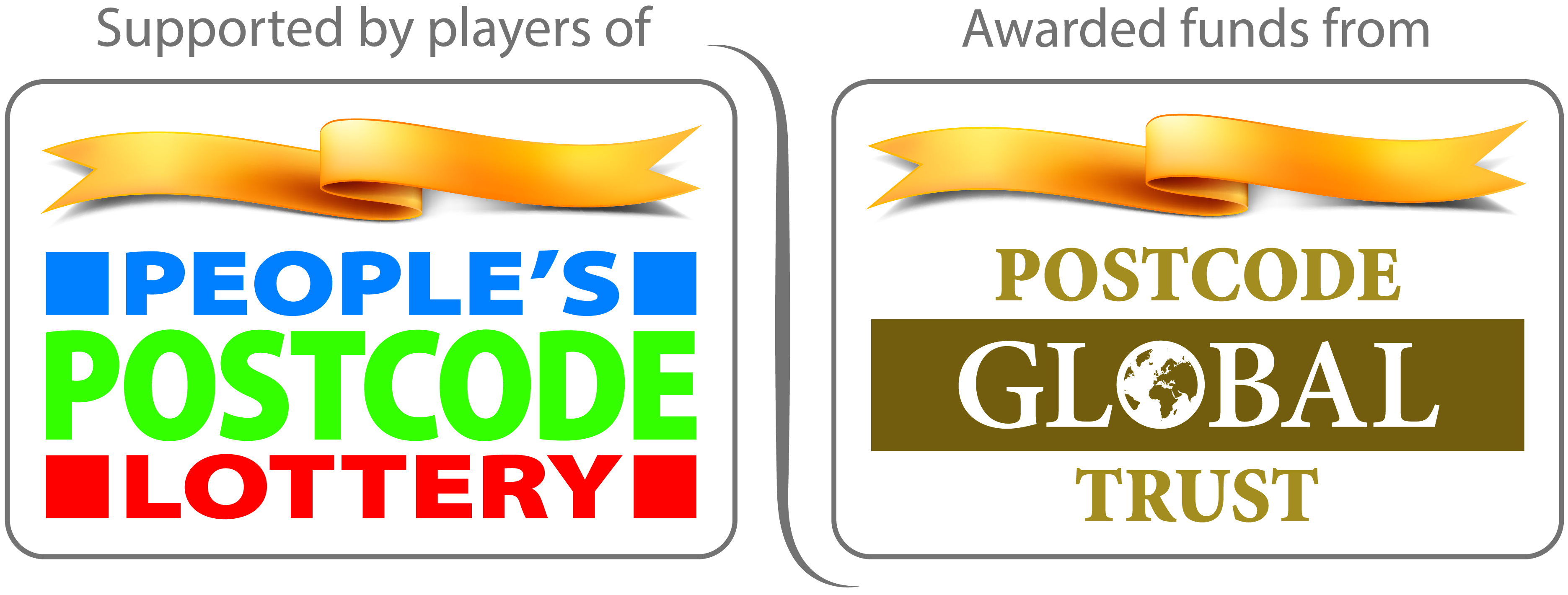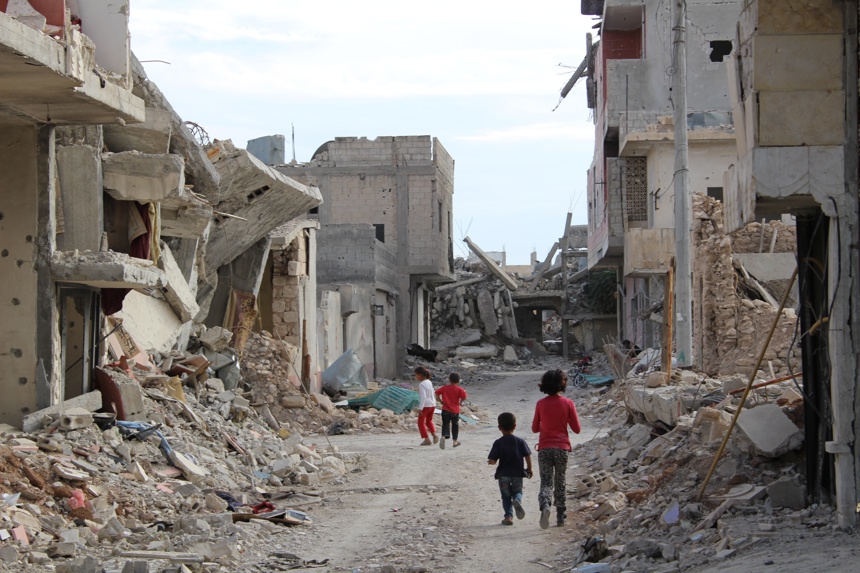
Nour Shihan is one of HALO Syria's explosive accident support workers. Originally from Ariha in Idleb, she was forced to flee when it was destroyed by shelling in 2015. Now, Nour and her family live in Kelly, North-West Syria, where she helps to provide prosthetic limbs and other mobility devices to people who have been injured by explosive ordnance and shelling.

Children are naturally curious, and this makes them more vulnerable to explosive accidents; an unexploded bomb can look like a tempting toy to an inquisitive child. Nour remembers helping a little girl who had lost her leg above the knee. Through Nour’s support, the girl received an artificial limb, but she was badly traumatised by her accident and being bullied at school. Nour gave her emotional support to help her through this difficult time, as well as providing access to critical medical care.
In Syria, one third of the population live in communities contaminated by explosives. According to estimates by the World Health Organisation, 15 per cent of people live with disabilities caused by the conflict. With the Syrian healthcare system under serious strain, many victims receive little or no assistance. HALO support workers provide registration, referral and transportation services to victims of explosive ordnance, to help them navigate the fractured healthcare system.
Transforming futures for the victims of conflict
In North-West Syria, where the People’s Postcode Lottery project is located, specialist services are either too far away, too expensive, or non-existent, so Nour’s work is critical. The people Nour works with suffer from amputations, broken limbs, and other serious injuries resulting from explosive accidents and shelling.
Last year, Nour supported Sana’a, who had lost her left leg in a mine accident and had been living in a camp in Idleb. She couldn’t afford medical expenses, and although she already had a prosthetic limb, it was very old, and she was in a lot of pain.
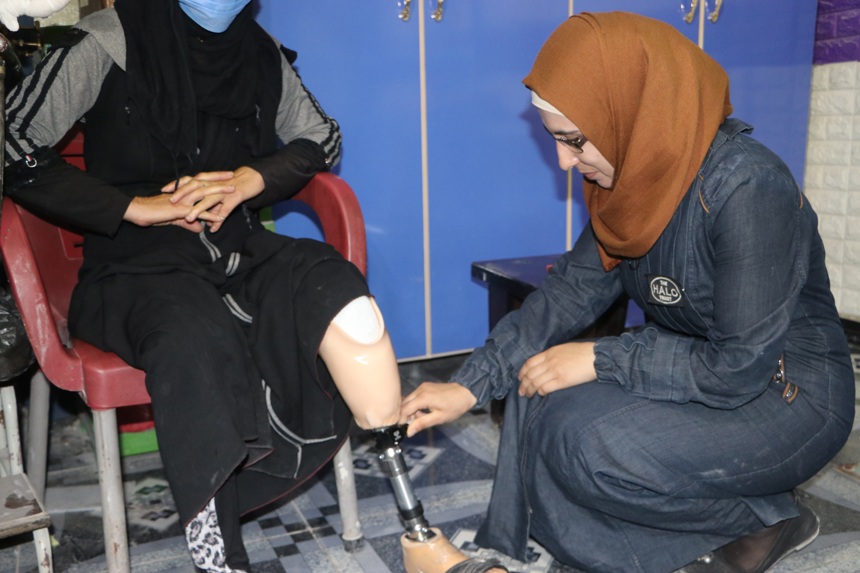
Earthquake response – helping those most in need
In February this year, further catastrophe hit, when Syria and neighbouring Turkey experienced two devastating earthquakes, the first at 7.8 magnitude, causing widespread devastation, killing over 50,000 people, and injuring many more. The first deadly quake struck while people were inside their homes, asleep in their beds, with no warning signs. Buildings, schools, and hospitals have been destroyed or damaged and people have been left without shelter in freezing winter conditions.
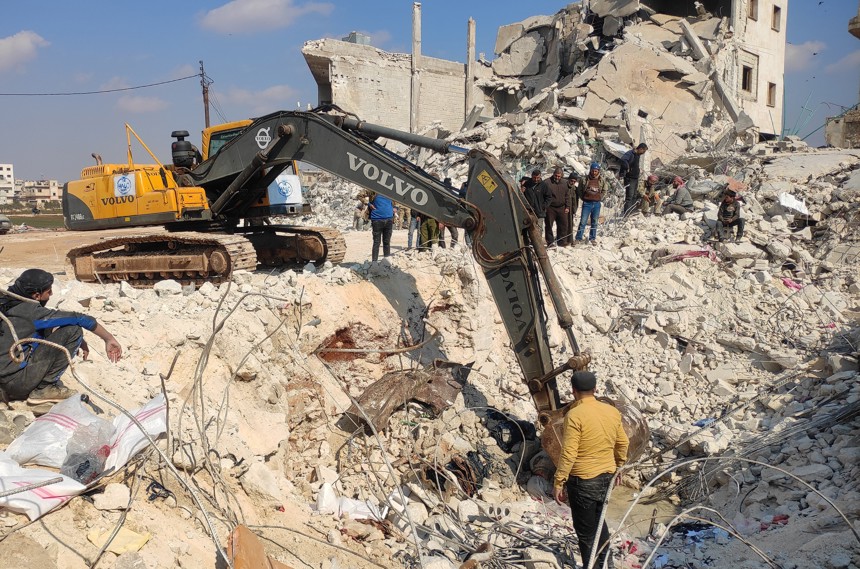
North-West Syria, where the Postcode People’s Lottery project is located, was one of the areas worst affected. When the earthquake struck, Nour was terrified. She found herself paralysed by fear and had to be carried to safety by her brother. In the moments following the quake, there was widespread confusion as people desperately tried to make sure their loved ones were safe.
Thankfully, Nour and her family were unscathed. They were the lucky ones and Nour resumed work just two weeks after the earthquakes hit.
Tens of thousands of people are now victims of this new crisis. In North-West Syria, two thirds of the population have been displaced and do not have access to proper housing. Many have migrated to IDP camps to sleep in tents where they feel safer. Unfortunately, this has increased the risk of explosive accidents, as people venture into areas that they are unfamiliar with and sprawling camps spill onto rural land that was not previously in use.
The work of our explosive accident support team has never been more important and with the help of players of People’s Postcode Lottery they have been able to extend their work to people who have been badly injured as a result of the earthquakes.
Nour resumed work just two weeks after the earthquakes hit, providing access to vital medical care and coordinating with a large network of organisations to provide essential items such as nappies and milk for babies, and access to shelter for those who have lost their homes.
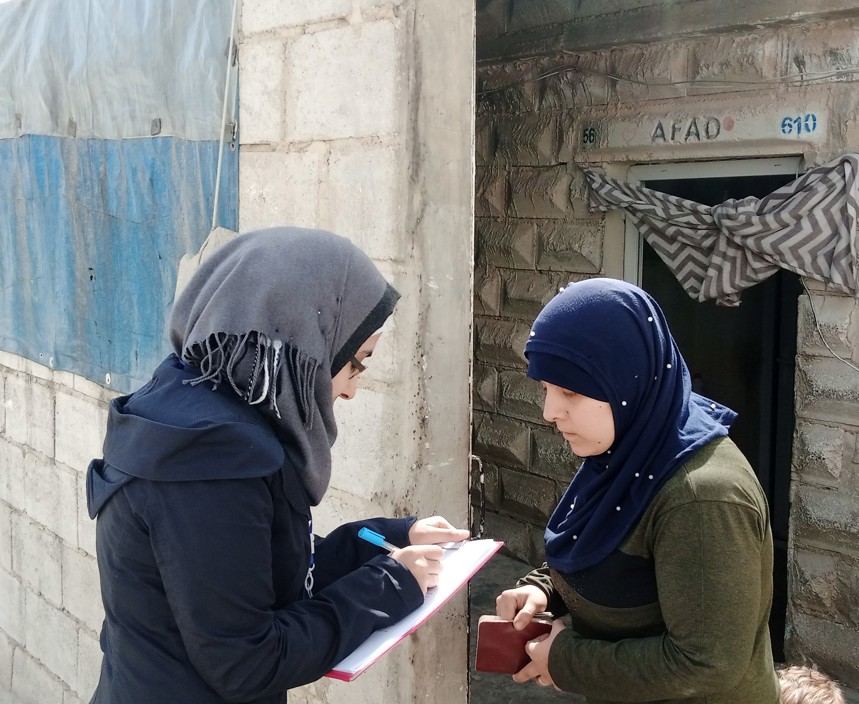
With the invaluable support of players of People’s Postcode Lottery, Nour and her colleagues can continue helping people whose lives have been devastated by the earthquake and the on-going conflict in Syria, providing the support they need to recover and safely resume their lives.
